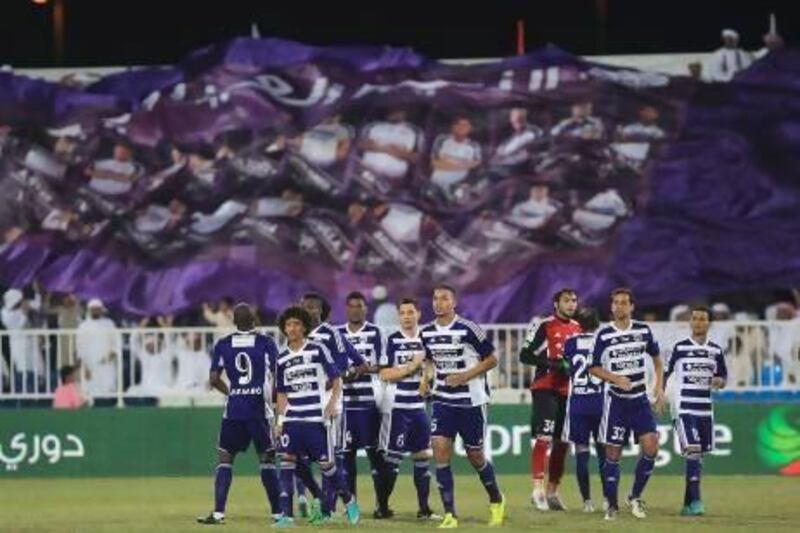Like nearly all top-flight outfits in the world, the UAE's Pro League does not provide information on shirt sales. These are, after all, commercially sensitive pieces of information.
Most of the 14 Pro League teams have only recently been selling - or, I should say, displaying their official merchandise - at their official club stores.
None of these outlets, however, is in a major retail store.
It was not clear whether top stores such as Nike and Adidas, or the UAE-based retailer Sun & Sands Sports, had decided that displays of Pro League shirts take up more shelf space than sales would warrant, or if the clubs were not convinced the demand for their shirts was sufficient to distribute them.
Since the Pro League embraced a professional set-up ahead of the 2008/09 season, many major changes have been made and improvements ironed out, including making club merchandise more readily available to fans.
It is, perhaps, no surprise that the 10-time champions Al Ain were among the leaders. They were one of the first Pro League clubs to sell their official merchandise at their own small kiosk stores at many of the malls in Al Ain, such as Bawadi Mall, Al Ain Mall and Jimi Mall, and the shirts can be found in retail sports shops throughout the city. Most of these, however, are counterfeit replicas, but they carry a modest price tag of Dh30.
Now, when consumers walk into nearly any mall in Abu Dhabi or Dubai, they can expect to see a kiosk-type store of a local club, attractively branded with the club's colours, and selling a variety of merchandise from shirts to key chains and mobile-phone covers.
A major concern remains - the sale of fake replica shirts of the clubs, which can be easily found around the country. Typically, the world's big clubs prefer to distribute licensed and better-made shirts, at a higher profit margin. Many sports leagues and organisations are extremely jealous of their brand and aggressively pursue, through legal channels, those who sell inexpensive imitations.
However, merchandising by local clubs is not yet so sophisticated that they are incensed by knock-offs. It may actually be the only realistic way, at present, that fans can obtain shirts of Pro League sides, which serves to broaden the brand of the club and the league.
I was at a small retailer in Al Ain before the championship game of the Gulf Cup, in January, and UAE shirts with Omar Abdulrahman's nickname, "Amoury", were hot sellers. I asked the merchants to print Amoury's name on the Dh30 shirt I purchased, but they told me they had hundreds of printing orders ahead of mine, and they would not have time to print my shirt before kick off. This may have been unprecedented in UAE history.
It must be exciting to Pro League supporters that Sun & Sand Sports, with their new flagship Nike concept store, only last year made a decision to sell domestic football merchandise at their store. The new outlet, located in the Mall of the Emirates, is the first Nike concept store in the UAE that sells football shirts of local sides such as Al Ahli, Al Wasl and Al Wahda. This is a big step forward, but is it too late for licensed merchandise to gain a foothold in the market?
Recently, research done by the Sporting Intelligence website on the sales of club shirts found that cheaper counterfeit goods have damaged any plans for clubs, especially in east Asia, to bank on the sales of licensed shirts as a significant source of revenue.
The thinking is that it is hard to change the habits of consumers, who become conditioned to cheap prices for knock-offs - and that could be happening in the UAE, too.
It is impossible to be sure because the Pro League clubs and the kit suppliers do not publish figures for shirt sales. Finding reliable data is difficult.
At present, the owners or board members of Pro League clubs cover nearly all expenses generated by those clubs, which take in no revenue from ticket sales and limited revenue from corporate sponsorships and television rights.
It will take years for clubs to become self-sufficient and licensed shirt sales could be an important part of that, not only in generating revenue, but in brand exposure for Pro League clubs.
Follow us
[ @SprtNationalUAE ]





